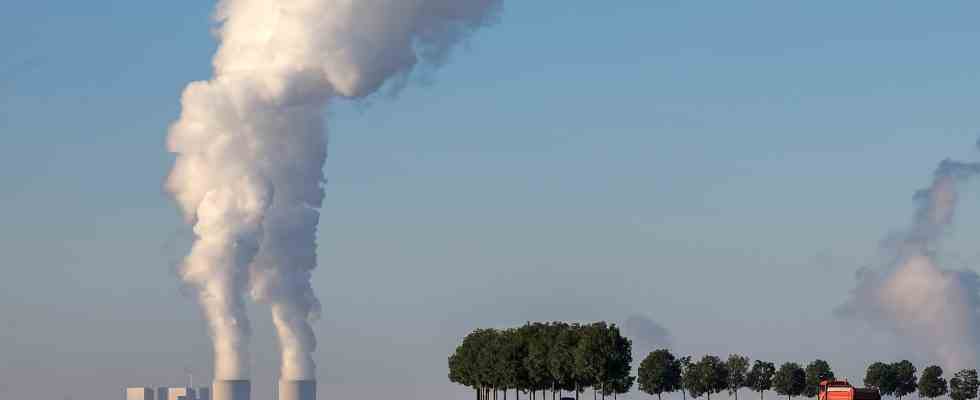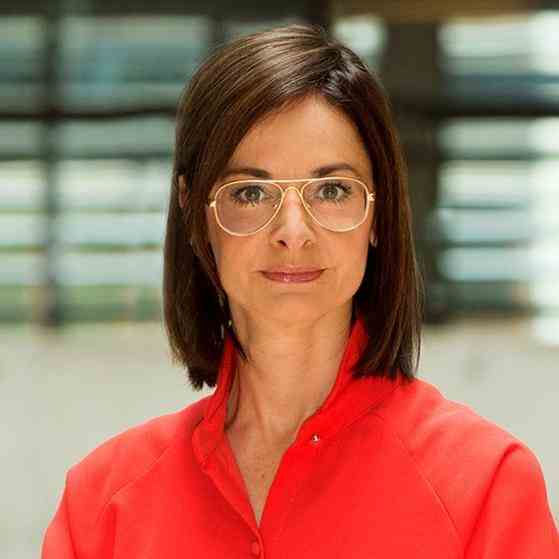Status: 03/16/2023 5:13 p.m
The Greens parliamentary group also wants an earlier phase-out of coal in the East. An internal paper describes the first cornerstones of a possible exit in Brandenburg, Saxony and Saxony-Anhalt.
Advancing the phase-out of coal in the east to 2030 – this is the goal that the Greens in the Bundestag want to advance. At their exam next week in Weimar, a corresponding key issues paper is to be decided. A design suits that ARD Capital Studio exclusively before.
So far, a legally stipulated end for coal-fired power plants in Brandenburg, Saxony and Saxony-Anhalt is only planned eight years later, i.e. 2038. The Greens argue that in order to achieve the climate goals, the coal phase-out must be brought forward.
Hydrogen-capable gas power plants
Gas-fired power plants are to be built to ensure the supply of electricity until the complete switch to climate-neutral energy. In their draft resolution, the Greens describe this as a crucial building block for the energy transition, which can contribute to security of supply.
The plants are to be built in such a way that they will later be suitable for hydrogen. That is, natural gas would then be replaced with green hydrogen to generate electricity. The Greens see eastern Germany as the main producer region for green hydrogen in the future. They also promise new jobs for the region.
Green party leader Katharina Dröge is convinced: Determined politics can develop huge growth potential in the region. This opportunity must be seized together with local employees and companies. “We don’t want to make decisions from Berlin for the region, we want a decision with the region,” said the Green politician ARD Capital Studio.
Country leaders: Earlier exit from coal unrealistic
Headwind comes from the eastern countries. Brandenburg’s Prime Minister Dietmar Woidke considers discussions about an earlier exit to be completely superfluous at this point in time. Compared to the ARD Capital Studio the SPD politician warned: “We have to be sure that we don’t saw off the branch we’re sitting on.” It would be years before power plants could produce green hydrogen.
“So first of all, power plants will be built that will burn gas for at least the next few years,” says Woidke. That would further increase Germany’s dependency on foreign countries – “regardless of which foreign country”. “Switching from one fossil fuel to another fossil fuel – just to get out of coal faster – I don’t think that’s the right way,” said Woidke.
Saxony-Anhalt’s Prime Minister Rainer Haseloff also doesn’t think much of the plans. To the ARD Capital Studio said the CDU politician: “As the state government, we have to supply the people and our companies with electricity – and with affordable electricity.”
His country is already very far in the expansion of renewable energies. And the phase-out of coal-fired power generation is also in full swing. “However, it also takes time for this structural change and the creation of good jobs. This time frame has been mutually regulated by a valid law,” says Haseloff.
Saxony’s Prime Minister, the CDU politician Michael Kretschmer, had already spoken out against the project at the beginning of the year when Federal Economics Minister Robert Habeck first discussed the premature exit.
Now the Green Group wants to put the project at the top of the political agenda – and hopes for a compromise similar to that with RWE in North Rhine-Westphalia in 2022. However, the coalition partners SPD and FDP would then have to go along with it.


